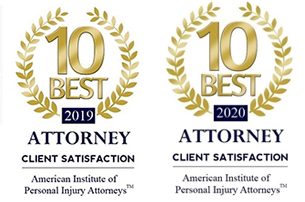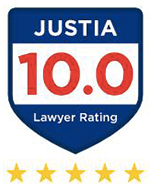
By: Karen Piso Nadeau, Esquire
Your personal injury attorneys and the at fault insurance company amicably agree on the terms of your personal injury settlement. Your lawyers skillfully draft a Release and get the Insurance Company to approve this Release which is acceptable to all insurance companies in the Commonwealth of Massachusetts. You expect to be able to quickly sign the Release and receive your settlement check the next day. Correct? No! You will not sign a Release and receive a settlement check the day after negotiations have successfully completed. Why not? When your personal injury case settles, that is just the beginning of the settlement phase. There is still work to be done by your attorneys before you receive your settlement check.
Whether you were involved in a car accident, bicycle collision, struck as a pedestrian, tripped and fell, or involved in another type of accident, there are many steps that must be taken before you get that money in your hands to compensate you for your loss. An experienced personal injury attorney will anticipate these additional steps and begin the work needed before your case settles. When the “settlement phase” is considered early on before settlement, it makes the process run much smoother so that when you finally reach settlement day, your check can be in your hands sooner than later. This blog will explore some of the most significant steps that must be addressed and tackled so that once you agree on a settlement number, there is as little delay as possible to get your money to you. Even with the most careful planning, some of these steps can create obstacles in the way of you getting the money promised in your settlement as soon as possible.
- Medical Liens & Health Insurance Liens
In Massachusetts, a medical provider may place a medical lien on your settlement money for outstanding medical bills owed. Also, in MA, health insurers have a legal right to recover the money they paid for any medical treatment related to the accident. Knowing the outstanding medical bills before your case settles is very beneficial to successful resolution. Often, medical bills get stuck with billing departments and need time to process through health insurance. Dealing with the outstanding bills before settlement to make sure they are addressed helps to avoid potential medical liens that can get in the way of you getting your money.
On day 1 – we tell our clients to make sure all medical providers have their proper health insurance information to bill to avoid problems down the road. Also, your attorney needs to know about any medical bills, so they are addressed. Our clients are responsible for making sure they provide us with any medical bill notices or letters relating to medical bills that they may receive while the case is ongoing.
As to health insurance, whether it is Tufts, Massachusetts Blue Cross Blue Shield or Harvard Pilgrim or some other health insurance plan, an experienced personal injury attorney knows how to secure the itemized lien and make sure it is all related to your accident. Securing health insurance lien information prior to your settlement so it is taken into consideration in negotiations places you in the best position for the most favorable recovery for you. Having the lien in progress before settlement helps to move your case forward more efficiently and quickly. There still may be delays with health insurance liens as often you can’t obtain the final lien until you have a settlement number. Then, there is often a negotiation of this lien amount to the injured party’s benefit whereby the lien is reduced. This puts more money in our client’s pocket.
- Medicare & Mass Health Liens
If you receive Medicare or Mass Health benefits, there is a process to secure the liens that are claimed by them. Like private health insurance, Medicare and Mass Health have legal rights to recover any monies they have paid out related to your accident. Again, like the private health insurance liens, the itemized Medicare and Mass Health liens are secured and reviewed to confirm the charges are in fact accident related. There is a process to work with these entities to negotiate these liens. Both Medicare and Mass Health have a right to be reimbursed from your settlement money. Therefore, it is very important to secure these liens in advance of settlement and know what you are expected to pay back. An experienced personal injury attorney will handle all of this for you and keep you informed so you can make the best decision on your case.
Once your case settles, these liens still need work and communication with Medicare and Mass Health to finalize everything and make sure the proper documentation is in place to protect you. At Nadeau Harkavy LLC, we make sure the Medicare and Mass Health liens on a client’s case are secured, accurate and handled so that our client has peace of mind knowing we have done everything we can for them.
- DOR (Department of Revenue) and Child Support Rights of Recovery
When you settle a personal injury case with an insurance company, they are required to run your social security number through the Department of Revenue and State of Massachusetts to confirm there are no tax payments outstanding or child support owed by you. At my firm, we inform our clients of this, so they are aware of the possibility of a problem with their settlement money in the event they owe taxes or child support obligations. If they owe either taxes or child support, the insurance company will be notified of this when they run their check. This creates a major challenge to obtaining all your settlement money.
If you owe money, the insurance company will receive notice with the obligation owed and send it to your personal injury lawyer. With the DOR, taxes, and child support, there is very little that can be done to challenge this if the money is owed by you. Typically, the insurance company subtracts the money owed from your settlement money and pays the State the tax or child support owed from the settlement money. You get what remains if anything. As your attorney, we have little ability to negotiate on this and our hands our essentially tied. Unlike health insurance liens, there is little room to negotiate. Tax payments and child support owed are two obligations that come first and get satisfied before you see any settlement money. I have seen clients completely surprised by this, and it is unfortunate for a victim who has been harmed to have to sacrifice their settlement money in these circumstances. But, if they owe the money, it is paying off their debt.
- Settlement Release Execution
Once a settlement number is agreed upon, a settlement release must be signed by the injured party before you get your money. The release memorializes the agreement between the injured party and insurance company on the settlement terms and conditions. As the injured party receiving the settlement money, you are releasing those responsible for the accident from any and all future claims against them related to the accident. Typically, you are releasing the owner of the motor vehicle and driver who caused you harm if it is a motor vehicle accident, for example.
The insurance company paying you the money typically sends your attorney the proposed release to review. As your attorney, we review the release and make sure it is accurate and reflects the settlement terms agreed upon. Sometimes, the insurance company attempts to include terms not agreed upon or the release is overly broad. As your attorneys, we then go back to the insurance company and insist upon the necessary changes and edits to the release to make it accurate. This takes some time but does not usually delay your settlement. In rare cases, the release is unreasonable, and the insurance company has added terms and conditions that are not standard. Then, there may be additional delays to work out a settlement agreement that is right for you.
It is typical in these releases for the insurance company to make it the injured party’s responsibility to satisfy all liens and medical bills owed related to the accident. As mentioned earlier in this blog, the health insurance liens, Medicare and Mass Health liens and medical bills should be taken into consideration when deciding whether the settlement proposal is right for you.
- Minor’s Settlement
If the settlement involves a child who has been injured in an accident, then there are protections in place to make sure the settlement is in the child’s best interest. We typically see minor settlements in cases where a child is crossing the street and is hit by a car, or a child is riding his bicycle and is struck by a vehicle. We also represent children who have been injured in a dog attack or hurt while riding in a car involved in a collision. There are special considerations when a case involves a child who has been injured in an accident. Typically, the child’s parents step in to represent the child. If there is no parent or a parent is not the primary caregiver of the child (which may be for a variety of reasons), often there is a legal guardian of the child who can step in to represent the child in the case.
A child or a minor is considered a person under the age of 18. In our legal system, a child under 18 is a minor who lacks the legal capacity to make decisions and represent themselves in a case. Therefore, a parent or legal guardian steps in to make those decisions and sign off on any settlement. Once a settlement is reached and a release is executed by the parent or legal guardian, the minor’s settlement must be approved by a judge in court in most cases.
A Petition for Minor Settlement Approval is prepared, agreed upon and finalized by the child’s attorney and insurance company’s attorney. Both attorneys sign off on the minor settlement petition and the documents are filed with the appropriate court with a request for hearing on the minor’s settlement approval. The papers filed with the court provide the judge with a description of the accident, the child’s injuries, treatment and medical bills and accounting of how the settlement money will be distributed. Additionally, the court needs to know how the money will be held and protected for the child as it is the child’s money for the benefit of the child injured.
We typically see the money go into a custodial account for the child or into a trust for the child and the parents or legal guardian are named as the person in charge of the money for the child. Sometimes in more significant cases, we see some of the money placed into structed settlements where the child’s money grows in an annuity with no risk of losing money so that the child receives the money on a specific date or dates in the future when the child is no longer a minor. This protects some of the settlement money for the child’s future when they become an adult. Sometimes we see payments at ages 18, 21, 25 for example.
Once the paperwork is filed with the court, the court then schedules a hearing date to approve the minor’s settlement. This hearing may be in person or now (since COVID) we have also seen some of the hearings on a Zoom meet. The attorneys for the child and insurance company as well the child and his parent or legal guardian are required to be at this hearing. The judge reviews the settlement terms and how the money is distributed and protected for the child. The judge then approves the settlement. Once the judge approves the settlement, the insurance company can then issue the settlement check.
- Incapacitated Person’s Settlement
Like minor settlements, the legal system has procedures in place to make sure that people who are incapacitated and cannot make decisions on their own are protected when reaching a personal injury settlement for the harm caused to them in an accident through no fault of their own. Your personal injury attorney will make sure that a loved one who is injured in an accident that is unable to understand and make decisions on their own has someone who can act for them. Sometimes a probate and estate attorney can help with deciding how best to move forward. Sometimes the incapacitated client will have a parent, spouse, or other relative petition the court to be a legal guardian or conservator who has legal standing to make decisions for the incapacitated person in the personal injury case and enter a settlement for the person who lacks the ability to understand and make decisions on their own.
- Estate Settlement
On occasion, the person injured in the accident passes away prior to settlement. Other times, a person may die as a result of a car accident or construction site accident for example, and there is a wrongful death claim brought for the surviving family members against the responsible parties. In these cases, someone needs to step in to represent the deceased person’s interests. Like an incapacitated person, the rights of a deceased person are protected through someone else who obtains legal standing to deal with the case. This is usually accomplished by retaining a probate and estate attorney who will give legal advice on the best way to proceed so that the deceased party’s legal rights are preserved in the personal injury case. There are legal documents filed and the probate court will approve someone to act on behalf of the deceased person’s estate. This is done so that any settlement money can be legally received and distributed to those surviving individuals who have a right to the funds.
Conclusion:
Once your personal injury case is settled, there are still things that need to be done before you get your settlement money in hand. This blog addressed some of the more common issues that we encounter as your personal injury attorney when resolving your case. An experienced personal injury attorney will anticipate the needs of your particular case prior to settlement and do as much as they can so that your case runs as smoothly as possible, and things are set in motion to get your money into your hands.
At Nadeau Harkavy LLC, we have over 60 years combined experience representing injured people and their families when they have been involved in an accident. We have recovered millions of dollars in compensation for our clients over the years to help them get on with their lives after suffering the consequences of a serious accident. We make sure everything is done to protect your interests while you and your family concentrate on getting better. We handle all types of accident cases including wrongful death, brain injury, car accidents, bicycle accidents, pedestrian accidents, trip and fall, slip and fall, dog bite, construction site, and catastrophic injury accidents. If you or a loved one has been harmed through no fault of your own, call us today for a free consultation about your legal rights at 617-674-7640.
Meet The Lawyers
With 60 years of combined experience serving injured victims in Massachusetts, our team has collaborated for nearly two decades, delivering a proven track record of outstanding results for clients. Guided by a philosophy of treating clients as we would our own family, we strive to ease our clients' journey from the initial phone call to case resolution. Committed to competing and fighting vigorously, we aim to hold insurance companies accountable to the fullest extent of the law. Our belief in close communication ensures the best possible outcomes, and our approachability makes us readily available to you. Entrust us with your case, allowing you to focus on your physical, emotional, and financial recovery.
Massachusetts Personal Injury Lawyers
Massachusetts Personal Injury Lawyers with over 60 Years Combined Experience Representing Those Injured in Accidents.














